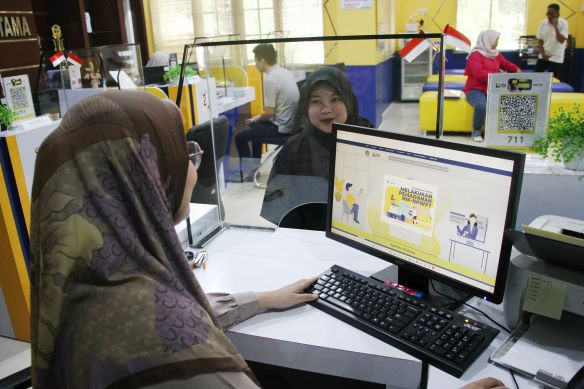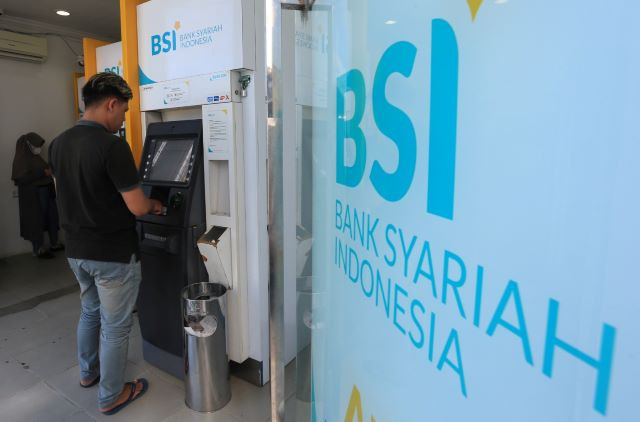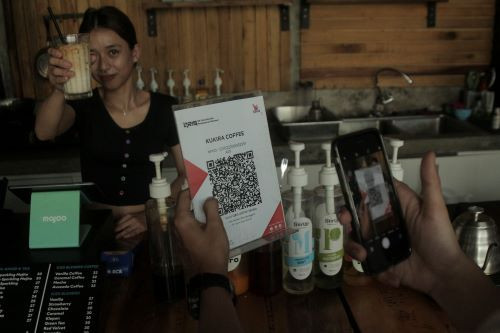EDITORIAL: Bekasi’s shining example
Change Size
 The development Becakayu toll road which connecting Bekasi City and Jakarta. (Antara Photo/Rosa Panggabean)
The development Becakayu toll road which connecting Bekasi City and Jakarta. (Antara Photo/Rosa Panggabean)
F
or decades Bekasi in West Java has played a pivotal role as a buffer city for Jakarta, the epicenter of Indonesia’s political and economic dynamics. The skyrocketing number of new housing complexes in Bekasi to the east, Depok and Bogor, also in West Java, to the south, and Tangerang and South Tangerang, both in Banten, to the west of Jakarta, only shows how development in the capital has spilled over into surrounding regions.
With more than 2 million people commuting from neighboring cities like Bekasi to Jakarta daily for work, and therefore contributing to the capital’s gross domestic product (GDP), the interconnection and interdependence between Jakarta and its neighbors is apparent.
But what is so special about Bekasi, which celebrated its 20th anniversary on Friday? Like Jakarta, Bekasi is facing a development trap characterized by poor planning, recurring floods, traffic gridlock and a widening income divide.
Apart from their proximity, both Bekasi and Jakarta have much in common, and the two can learn from each other’s successes and mistakes.
Last year Bekasi followed in the footsteps of Jakarta by facilitating direct communication between local leaders and the people through mobile phone applications, in a bid to improve public services. After Jakarta introduced Qlue, Bekasi launched the Integrated Online Reporting (POT) and Smart Online Reporting and Observation Tools (SOROT), which enable residents to report flaws in public services or post their aspirations to the mayor.
The Bekasi administration under Mayor Rahmat Effendi has taken full advantage of information technology to accelerate the delivery of public services, solve day-today urban problems and help the local economy grow as envisioned in its “smart city” concept. Such a commitment, if fulfilled, will transform Bekasi into a promising alternative for those still clinging to Jakarta as their dream city.
Many may feel that today Bekasi trails Jakarta, albeit closely, in many fields. But in promoting tolerance, Jakarta may have a lot to learn from Bekasi, or to be precise Mayor Rahmat.
Heading into his fourth year in office, Rahmat has built his credentials as being in the vanguard of religious tolerance, while in many other West Java regions leaders deliberately play the religious card as a cheap and easy way to cling to power.
Departing from the general view, portrayed in surveys, of West Java being an intolerant region, Bekasi raises new hope that diversity can survive and even prosper in the country. Rahmat, a Muslim, rose to prominence for his defense of the Santa Clara Catholic church in North Bekasi against Muslim hardliners who opposed its construction.
It comes as no surprise that none less than Pope Francis himself has invited Rahmat, along with progressive female Muslim figure Yenny Wahid, to the Vatican in May to share his experience and the challenges he has faced in upholding religious tolerance.
Bekasi’s contribution is not limited to Jakarta, but to Indonesia as a whole. Bekasi is by no means the least among Indonesian cities. Who knows? It may yet produce the country’s future leader.









